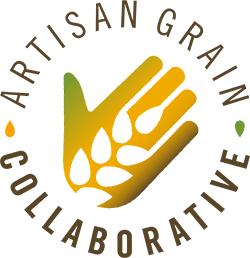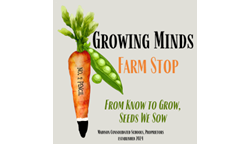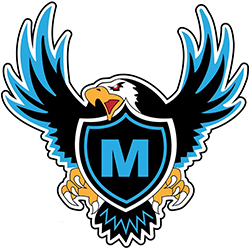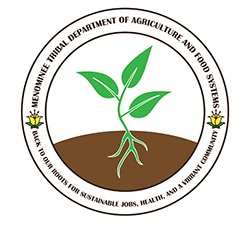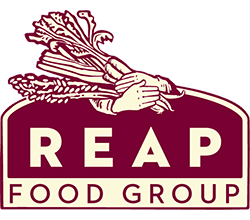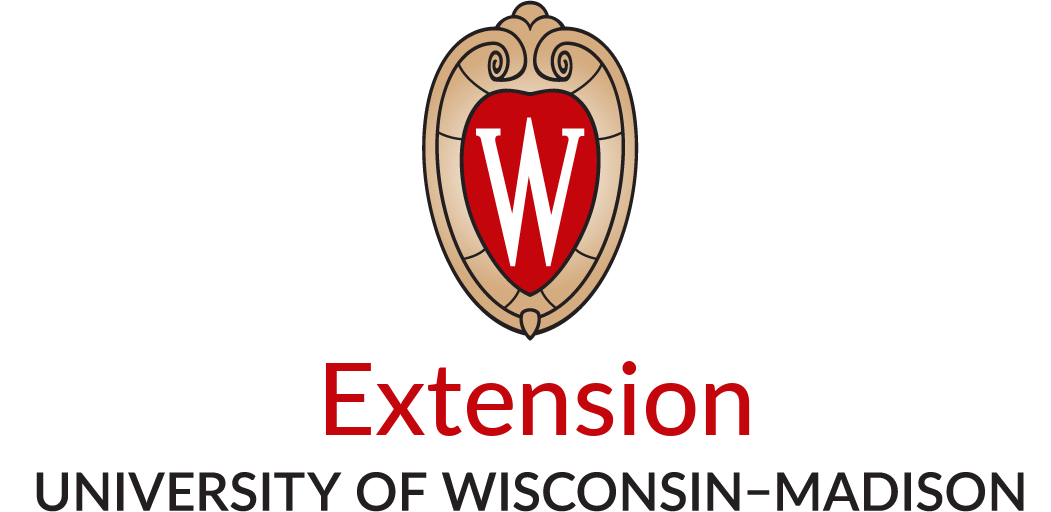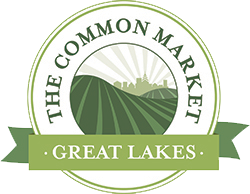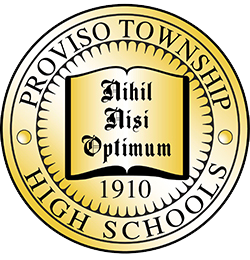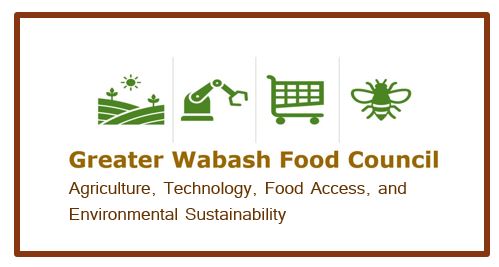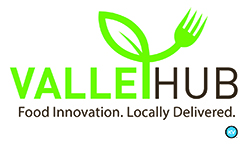Grantees
2024 Innovation CollaboratiVE Award Grantees
“Buy Local, Cook Fresh Illinois”
Beyond Green Partners
Partners: Janie’s Mill, FarmFED Co-Op, Illinois State Board of Education and Sangamon County
Buy Local, Cook Fresh Illinois is a comprehensive training cohort project to help guide three rural Central Illinois schools in transforming their food service programs to scratch-cooking operations that use locally sourced ingredients. The cohort approach allows participants to collaborate and learn together, creating a community of schools to help build and support a local school food system. Participating schools will gain the skills to incorporate local and fresh food into nourishing meals that students want to eat and staff want to make.
This project will train schools to use fresh local ingredients in scratch-cooking, thereby generating the demand for larger consistent orders from institutions for local food. This transformative project builds upon past successes in the state of Illinois and creates a regional model from which other districts can learn and adopt, creating the opportunity for large-scale change to local school food systems and meal production. As regional cohorts grow in size beyond the lifecycle of this project, the demand for local food will be greater, making it a more viable market for local farmers to serve.
“Grains to Trays II”
Artisan Grain Collaborative
(Fiscally sponsored project of Global Philanthropy Partnership)
Partners: Tenera Grains, Tortilleria Zepeda, School District of Holmen, Mount Horeb Area School District and Janie’s Mill
This project will increase the number of food producers working with schools in the Lake Michigan region by investing in the grain farmer and producer community, deepening relationships between producers and school nutrition staff, resource creation, and trialing innovative pilot strategies at schools. With a direct emphasis on regionally grown whole grains, project activities will focus on growing engagement of both grain producers and local food businesses that make food products with regionally grown grains, ensuring they have appropriate information, connections, and tools to effectively engage with and serve schools in the region. By developing successful pathways to incorporate local and regionally grown whole grains within school meal programs, this project will benefit small and mid-size Midwest grain farmers, processors, and food producers in primarily rural communities and Midwest school districts and food service programs, with a priority focus on the School District of Holmen in Holmen, Wisconsin.
“Growing Minds: Engaging Students in Building the Future of their Food System”
Madison Consolidated Schools
Partners: Madison Youth Unlimited and Food and Growers Association
Over 50 percent of students at three elementary schools in the Madison Consolidated School District rely on school meals to meet their nutritional needs. The Growing Minds partnership between Madison Consolidated Schools, Madison Youth Unlimited, and the Food and Growers Association aims to increase the capacity of farmers in and around Jefferson County, Indiana, to supply these schools with fresh, high-quality local food for school lunches. Recognizing that strong food systems are a network of interrelated components that must be built with the long-term in mind, the Growing Minds project will build the following programs during the grant period:
- A student-run, indoor local food marketplace (farm stop) that will double the customer base for local farmers and supply three rural elementary schools with fresh, local food;
- Research and development on the creation of a food hub in the Jefferson County area, connecting farmers with schools, other institutional buyers and individual consumers;
- Cooking classes and listening sessions that empower families to choose fresh foods and use their voice to build a supportive local food system;
- School gardens that intentionally prepare students for leadership in the school food system;
- Listening sessions and consultations across southeast Indiana to assist communities in building strong local school food systems and build a network of growers who can fill supply gaps across the region.
“Food Futures: Connecting Rural Production, Procurement and Processing in the UP through Education, Collaboration and Community”
Partridge Creek
Partners: Northwoods Test Kitchen, Chartwells, MSU Upper Peninsula Research and Extension Center, Marquette-Alger RESA, Ishpeming Public School District No. 1, Negaunee Public Schools, Little Parsley Farm and UP Food Exchange
Food Futures: Connecting Rural Production, Procurement and Processing in the Upper Peninsula (UP) through Education, Collaboration and Community sets to create food safe procedures to get local produce from farm to cafeteria. The dynamic collaboration of Partridge Creek Farm (PCF), Northwoods Test Kitchen (NTK), Chartwells, Michigan State University Upper Peninsula Research and Extension Center (MSU), and Marquette-Alger RESA (MARESA) aims to create an integrated local supply chain that connects a nonprofit educational farm’s production with students’ vision for their school lunch by working closely with the Ishpeming Public School District and Negaunee Public Schools.
Through delivery of the Locally Integrated Food Teams in the UP (LIFT-UP) classroom curriculum and professional development opportunities, led by MSU and MARESA, students will engage in taste tests, land-based learning and food stories to guide the development of local food products that align with USDA school nutrition standards. PCF, NTK and Chartwells will focus on crop planning, developing standard operating procedures (SOPs) for farms and kitchens, food production, processing food for recipes that align with school nutrition standards, and serving local food in school lunches. Lessons learned along the way will be shared through local food sourcing practices, templates, training materials and peer-to-peer learning opportunities for farmers, food producers and foodservice directors across the UP and beyond.
“Rising Suns: Expanding Food Sovereignty Efforts of The Menominee Indian Tribe of Wisconsin and The Menominee Indian School District”
Menominee Indian Tribe
Partners: Menominee Indian School District and Menominee Language and Culture Commission
The Rising Suns project is a collaboration between the Menominee Indian Tribe of Wisconsin’s (MITW) Department of Agriculture and Foods Systems and the Menominee Indian School District’s (MISD) Forestry Education Department to develop a Tribal Future Farmers Association. Rising Suns will create programming for students to cover hands-on topics such as food forestry, farming, indigenous gardening practices, maple grove management/tapping and more. The food produced within the program can be used to build production for the MISD Food Service alongside a number of new, healthy recipes.
The Rising Suns project seeks to create and encourage career pathways for youth in food sovereignty while incorporating language and traditions into its teachings. The increased capacity of the MISD Food Service will have lasting positive impacts on the health of the community as well as sustainability within the agricultural workforce.
“Good School Food: A Community-Driven, Food System Approach to Expand Healthy School Meal Options in Milwaukee”
FoodRight, Inc.
Partners: Mutch Better Foods, LLC, Milwaukee Public Schools and Anita Garrett—School Food Advocate
Good School Food (GSF) will initiate changes on both the demand and supply sides of the regional school food system so that all Milwaukee Public School (MPS) students can enjoy delicious, nutritious school meals. Piloting the project in 30 schools, we will build systems and partnerships to address supply-side infrastructure, ensuring that MPS has access to enough locally produced, regulation-compliant food to prepare 65,000 meals daily. Activities include facilitating an aggregator for locally grown produce and building a supply chain infrastructure that supports the influx of fresh, locally sourced meats, legumes, produce and dairy products. On the demand side, the team will work with Nutrition Services and school staff to increase family collaboration in enhancing school meal options through the development of Youth Ambassadors and Parent Champions programs. Ambassadors will provide input on new recipes, collecting market data as they showcase new foods to peers through cafeteria taste tests. Parent Champions will work with parents in their schools to communicate their priorities and inform changes to the meal service. Bringing together key players from both the demand and supply side, GSF will create a Community Council that will meet regularly to share ideas and concerns and problem-solve together to increase healthy, feasible menu options that appeal to the community.
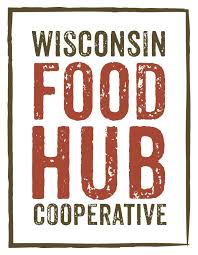
“Building a Farm to School Logistics and Pricing Model for the Great Lakes Region”
Wisconsin Food Hub
Partners: School District of Mellen, Wausau School District, UW-Madison: Center for Integrated Agricultural Systems, Cattail Organics LLC and Olden Organics
Our project will continue to support local farmers by expanding and improving the sales and distribution of their products to school food programs in northern and northwestern parts of the state. It will enable the hiring of staff who will collaborate with farmers and school food service teams to form a cooperative buying group along the distribution route. Together, we will develop a pricing and distribution model that improves access to local produce. A key focus will be filling a refrigerated truck with the right mix of products—balancing volume, value, nutrition and cost—to ensure distribution remains affordable for schools while supporting farmers’ livelihoods.
“School Nutrition Culinary Innovators of Tomorrow”
REAP Food Group & Wello, Inc.
Partners: Madison Metropolitan School District, Green Bay Area Public School District, Seasonal Harvest LLC, Rooted, Northeast Wisconsin Technical College and Madison College
This project will develop and implement a college-level paid School Food Stage (SFS) traineeship aimed at growing the appeal of school nutrition careers among culinary students. This is a regional collaboration approach, co-led by REAP and Wello, that will build the SFS traineeship based on the specific needs and aspirations of the school nutrition programs at Madison Metropolitan School District and Green Bay Public Schools while leveraging the expertise of the professional culinary programs at Madison College and Northeast Wisconsin Technical College (NWTC) in Green Bay. The traineeship will also provide the opportunity to learn from Rooted and Seasonal Harvest to better understand how to move local foods from the field to the school cafeteria.
“Bringing Fresh Salad Greens to Schools in Wisconsin”
Hundred Acre, LLC
Partners: Wisconsin Food Hub and TransCenter for Youth/Escuela Verde High School
Our goal is to grow leafy greens hydroponically year-round and provide them to schools throughout the entire school year, in partnership with the Wisconsin Food Hub Cooperative, which will handle distribution. We will also collaborate with TransCenter for Youth, an independent school district in Milwaukee, to expand our Edible Learning program at Escuela Verde High School. As part of this program, we will allocate resources to support Escuela Verde’s Café Manager and Family and Community Engagement (FACE) teacher in the first year, helping to secure this essential role within the school and ensuring they can be fully funded by the district in subsequent years. Additionally, we will offset labor costs, allowing us to offer greens to schools at a low price as these products gain traction in school lunch programs and fit within school food service budgets. This project will strengthen our partnerships and support the successful launch of these programs.
2024 Spark Award Grantees

“Introducing Hmong Cultural Food to the School System”
NEW Hmong Professionals
NEW Hmong Professionals is working with the Lake Michigan School Food System Innovation Hub to help address healthy eating and wellness for Hmong students through traditional Hmong cuisine. This initiative is focused on system changes that will spur local economies, strengthen local food systems and create more nutritious meals for Hmong students that also meet their preferences. This project aligns with our commitment to promoting healthy eating habits, celebrating our region’s rich traditions, and ensuring that all students have access to meals that nourish both their bodies and minds.
In this project, NEW Hmong Professionals will introduce different Hmong-style foods to Hmong students through surveys and community engagement events with students, educators, and parents around availability, access, and the importance of traditional foods in the school system. Engagement activities will consist of cooking demonstrations, intergenerational focus groups, tasting events and cross-community celebrations in the school district. Additionally, we plan to work closely with the Hmong American Immersion School (HAIS) in order to integrate Hmong foods into their curriculum and meals for Hmong students. By actively involving students and families in the planning and implementation of our project, we hope to empower them in embracing challenges and leveraging opportunities around the foods students know and love.
Concurrently, NEW Hmong Professionals will collaborate with Hmong farmers to create a Hmong Farmers Food Hub, where local Hmong farmers will receive training on cultivating produce and wholesaling to schools, Hmong restaurants and Hmong grocery stores. By supporting Hmong farmers in scaling their businesses, we can help them establish a robust farm to table process that provides a more enriching school meal experience for Hmong students while contributing to the growth and viability of local food systems.
“Growing for Schools”
Rooted WI, Inc.
The Growing for Schools project aims to create a regional support system for farmers and food service staff in the Madison, Wisconsin area to increase the availability of locally grown foods reflective of student preferences in school meals. This involves conducting listening sessions with small-scale growers, organizing workshops and educational programs to facilitate collaboration between growers and schools, and engaging families to gather feedback on school meals. These efforts are designed to strengthen connections, enhance growers’ capacity to supply schools, and ensure that school meals reflect the people and communities across our city.
“Growing Capacity and Connections for Hmong-Focused Farm to School”
The Board of Regents of the University of Wisconsin System
Partners: UW-Madison Division of Extension: Community Food Systems Program, UW-Madison Division of Extension: FoodWIse Program and AmeriCorps Farm to School Service Member
Growing Capacity and Connections for Hmong-Focused Farm to School is a network and capacity building project that increases readiness for Hmong-focused Farm to School by engaging with farmers, food service directors and students. This work occurs primarily in two focus areas in Wisconsin (La Crosse County and Eau Claire County) through location-specific Hmong farmer needs assessments, in-person farmer trainings and direct education for students. The project also includes the development and dissemination of statewide outreach materials and opportunities for statewide Hmong-focused F2S network development.
“Lowering Adoption Barrier to Regionally Sourced Foods in Chicagoland Schools: Exploring Manufacturing, Food Service Operations and Acceptability of Regional Black Bean and Beef Blended Products in School Cafeterias”
The Common Market Great Lakes
Partners: McCann Meat Company and Proviso Township High Schools District 209
This project will enable assessment of both supply chain viability and acceptability of a regionally sourced, pre-cooked beef and black bean product in Chicagoland region schools. In practice, this project will be focused on research and development activities with McCann Meats as well as supplying the resources necessary to conduct a series of taste tests with Proviso Township High Schools District 209 food service team and student cohorts. Our goal is to learn what needs to be true from a producer, student likeability and food service operations perspective, so more local and plant-forward products can be added to school food menus in the region.
“Planting Farm2School in Southeastern Illinois”
Greater Wabash Food Council
Partners: Edwards County CUSD #1, Grayville CUSD #1 and Allendale CUSD #17
Educational leaders in southeastern Illinois have expressed a desire to enhance farm to school initiatives across ten school districts spanning six counties of the Greater Wabash region, serving over 11,000 students in 32 cafeterias. Navigating local food seasonality is a large hurdle for farm to school initiatives and this project will explore flash freezing items to help farmers extend their season.
During the 2024/2025 school year, this project will create an Advisory Committee, identify necessary state-level partners, and run taste tests in preparation for flash freezing sweet corn and future school food products. This project will support farm to school programming in 32 cafeterias, execute tasting events and provide a blast chiller for use in the region. Three schools—Edwards County CUSD #1 in Albion, Grayville CUSD #1 in Grayville and Allendale CUSD #17 in Allendale—have been selected as lead schools for this project.
“Rooted School Indy Food System Hub Strategic Planning”
Rooted School Indy
Partners: Side Street Food Service and TechServ Corporation
“Rooted School Indy Food System Hub Strategic Planning” supports a food system hub centered around increasing student access to the nourishing food they need to thrive. This one-year project engages a community-centered planning team, connects with students and families, engages with local producers, develops an Action Plan and addresses immediate kitchen needs to incorporate fresh ingredients and scratch cooking. The focus area is the eastern edge of the 46218 zip code on the near-east side of Indianapolis. The priority school is Rooted School Indianapolis, a charter school serving 7–12th grade students; a local Pre-K–6th grade school and community center will also engage in the project, promoting a community-wide food system hub, working collaboratively to improve childhood and family nutrition. These meals are key to food access with an opportunity to reimagine them in ways that nourish students, engage local producers and celebrate the community.
“Workshops to Expand Local Purchasing in Schools”
Kalamazoo Valley Community College
ValleyHUB at Kalamazoo Valley Community College (KVCC) plans to develop and pilot a series of skill-development workshops for school foodservice directors, with the goal of increasing the volume of local purchasing and improving nutritional content of meals in ValleyHUB partner school districts in Southwest Michigan. Six in-person workshops will take place at KVCC’s facilities between October 2024 and October 2025; they will align with online content and ongoing technical assistance provided throughout that same period. Workshop participants will include foodservice directors and managers from Southwest Michigan school districts who are already making local food purchases through ValleyHUB, and will focus on seasonal menu development, procurement and planning to reduce barriers. Participants will receive stipends for participation. Evaluation and lesson-sharing will be embedded throughout the workshop series and amplified through a simple podcast for broader sharing. If the pilot is successful, future funding will be sought to expand the pilot workshop curriculum series until it can be a self-sustaining, fee-based professional development offering, or can be shared with other partners.


